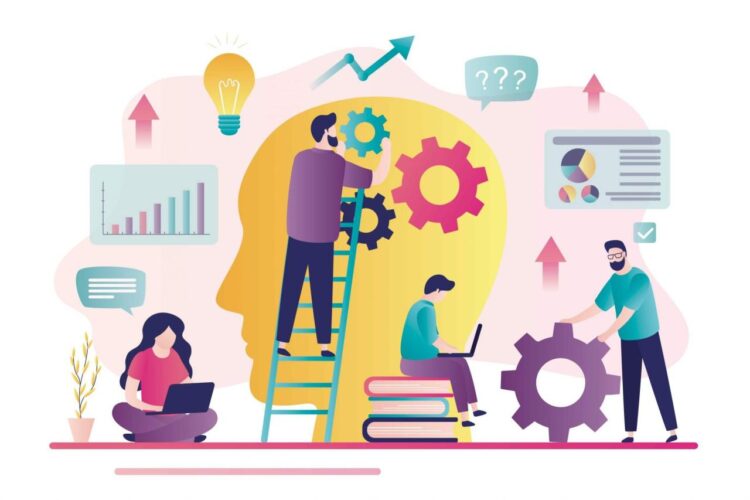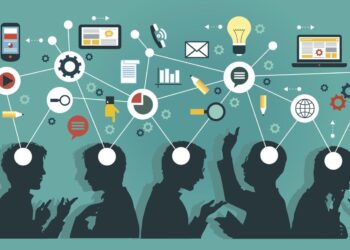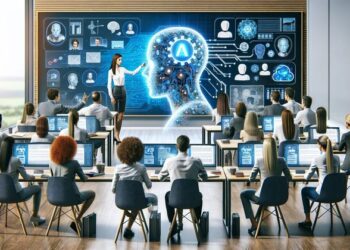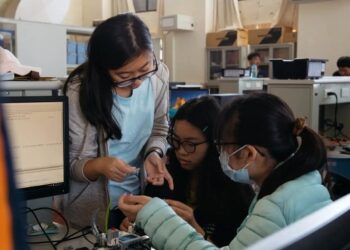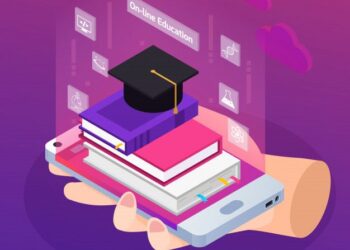What is the New Economy?
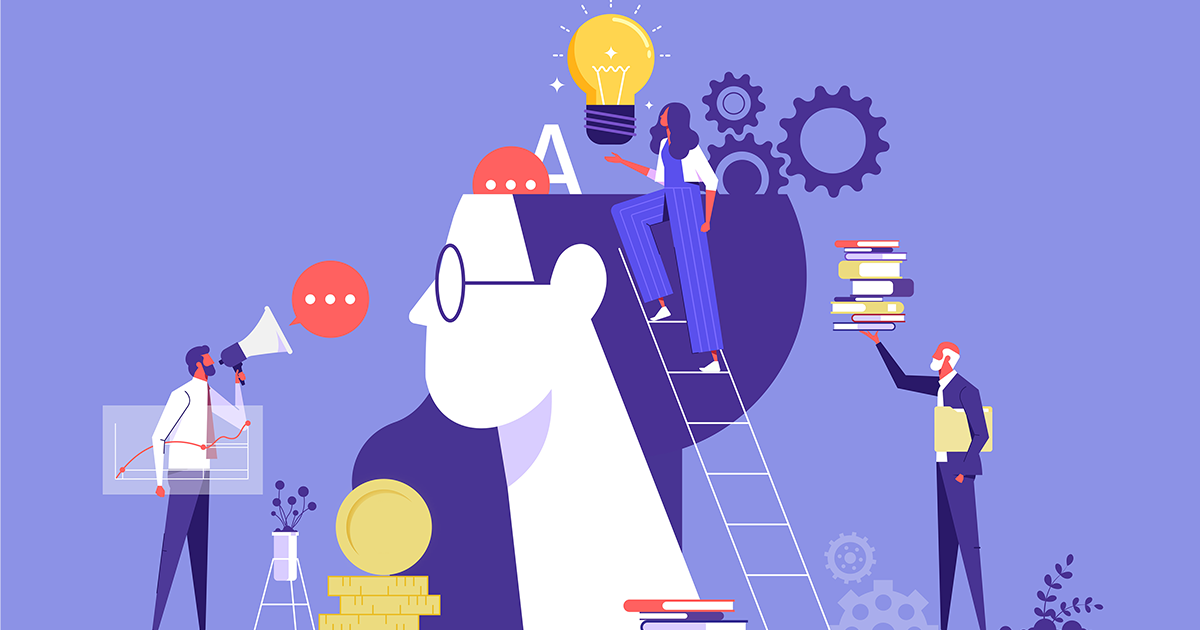
The “new economy” isn’t just a catchy phrase; it represents a fundamental shift from traditional industrial and service-based models to one characterized by speed, innovation, and digital integration. Several intertwined forces are reshaping how we work, produce, and consume.
A. Technological Revolution: The relentless pace of technological advancement is arguably the most significant driver. Technologies like Artificial Intelligence (AI), machine learning, automation, robotics, blockchain, virtual and augmented reality, and the Internet of Things (IoT) are not just emerging; they are being rapidly integrated into every sector. This creates new industries, new job roles, and fundamentally alters existing ones. For instance, tasks that were once manual and repetitive are now automated, freeing up human workers for more complex, creative, and analytical roles that require new skills.
B. Globalization and Interconnectedness: The world is more connected than ever before. Global supply chains, international collaborations, and cross-border competition mean that businesses and individuals must operate within a global context. This requires not only technical skills but also cultural intelligence and adaptability to diverse market demands.
C. Demographic Shifts and Changing Workforce Expectations: The workforce itself is changing, with multiple generations co-existing, each with different expectations regarding work-life balance, career progression, and purpose. Furthermore, an aging global population in some regions and a youth bulge in others create unique labor market dynamics that demand adaptable skill sets.
D. Data as the New Oil: Data is now a strategic asset. The ability to collect, analyze, interpret, and leverage vast amounts of data is crucial for decision-making in almost every industry. This has created an explosion in demand for data scientists, analysts, and professionals who understand data governance and ethics.
E. The Gig Economy and Flexible Work Models: The rise of the gig economy, remote work, and project-based assignments indicates a shift away from traditional, long-term employment structures. This requires individuals to be more self-sufficient, entrepreneurial, and constantly marketable, necessitating continuous skill development.
F. Increased Emphasis on Sustainability and Ethics: Businesses and consumers are increasingly prioritizing environmental sustainability, social responsibility, and ethical practices. This creates demand for new skills related to green technologies, sustainable supply chain management, and ethical AI development.
In this dynamic environment, skills have a shorter shelf life than ever before. What was considered a cutting-edge skill five years ago might be commonplace or even obsolete today. This reality makes continuous upskilling not a luxury, but a necessity for relevance and success.
The Indispensable Benefits of Upskilling for Individuals and Organizations
Upskilling offers a powerful win-win proposition, providing significant advantages for both the workforce and the enterprises they serve.
A. For Individuals:
1. Enhanced Career Resilience and Employability: In a volatile job market, upskilling acts as a crucial buffer against redundancy. By acquiring new, in-demand skills, individuals remain relevant and marketable, increasing their chances of securing and retaining employment, even as industries evolve.
2. Increased Earning Potential: Skills gaps translate to higher demand for specialized talent, which often commands higher salaries. Investing in upskilling can directly lead to higher wages and better compensation packages.
3. New Career Opportunities and Mobility: Upskilling can unlock entirely new career paths or enable transitions into different roles or industries. It provides the flexibility and adaptability needed to seize emerging opportunities that align with personal interests and market needs.
4. Greater Job Satisfaction and Engagement: Learning new skills can reignite passion for work, reduce boredom, and provide a sense of accomplishment. Mastering new competencies can lead to increased confidence, autonomy, and overall job satisfaction.
5. Improved Adaptability and Growth Mindset: The continuous process of upskilling cultivates a growth mindset, fostering an eagerness to learn and adapt to change. This mindset is invaluable for navigating the uncertainties of the new economy and personal development.
6. Personal Branding and Market Value: Possessing unique and sought-after skills enhances an individual’s personal brand, making them more attractive to potential employers and collaborators. It signals proactivity and a commitment to professional excellence.
B. For Organizations:
1. Increased Productivity and Innovation: A highly skilled workforce is a more productive and innovative one. Upskilling employees on new technologies and methodologies directly contributes to operational efficiencies, enables the adoption of cutting-edge solutions, and drives innovation within the company.
2. Reduced Recruitment Costs and Time: Investing in upskilling existing employees is often more cost-effective and faster than constantly hiring new talent from outside, especially for specialized roles. It also helps in retaining institutional knowledge.
3. Improved Employee Retention and Loyalty: Companies that invest in their employees’ growth demonstrate a commitment to their workforce, leading to higher job satisfaction, reduced turnover, and increased loyalty. Employees are more likely to stay with organizations that support their professional development.
4. Enhanced Organizational Agility and Competitiveness: A workforce that can quickly acquire new skills allows an organization to adapt rapidly to market changes, technological disruptions, and new competitive landscapes. This agility is crucial for long-term survival and competitiveness.
5. Stronger Company Culture and Morale: A culture of continuous learning fosters a dynamic, forward-thinking environment. When employees feel supported in their development, morale improves, and they become more engaged contributors to the company’s success.
6. Talent Pipeline Development: Proactive upskilling programs help organizations build an internal talent pipeline, ensuring they have the necessary skills readily available to meet future strategic objectives and fill leadership roles.
Strategic Approaches to Effective Upskilling

To be successful, upskilling requires a strategic approach, encompassing various methods and a commitment from both individuals and organizations.
A. Identify Skills Gaps and Future Needs: The first step is to conduct a thorough assessment of current skill sets within an organization or for an individual. This involves identifying existing gaps and forecasting future skill requirements based on industry trends, technological advancements, and strategic goals. Tools like skill assessments, market analysis, and future-of-work reports can be invaluable.
B. Leverage Online Learning Platforms: The digital age has democratized access to learning. Platforms like Coursera, edX, Udemy, LinkedIn Learning, and specialized bootcamps offer a vast array of courses, certifications, and micro-credentials in virtually any skill imaginable. These platforms provide flexibility and often self-paced learning.
C. Internal Training Programs and Workshops: Organizations can develop tailored in-house training programs and workshops that address specific skill gaps relevant to their business operations. This could include technical training, soft skills development, or leadership programs.
D. Mentorship and Coaching: Pairing experienced professionals with those looking to upskill can be highly effective. Mentors can share practical knowledge, provide guidance, and offer insights into industry best practices. Coaching can help individuals identify strengths, overcome weaknesses, and set clear development goals.
E. Project-Based Learning and Rotations: Learning by doing is powerful. Assigning employees to new projects that require them to acquire new skills, or offering departmental rotations, provides hands-on experience and accelerates learning. This applies to individuals seeking personal growth as well – taking on new challenges outside of their comfort zone.
F. Micro-credentialing and Certifications: As opposed to full degrees, micro-credentials and industry-recognized certifications offer focused validation of specific skills. They are often faster and more affordable to acquire, making them ideal for targeted upskilling and demonstrating immediate proficiency.
G. Personalized Learning Paths: Recognizing that not all learners are the same, creating personalized learning paths based on individual roles, career aspirations, and learning styles can significantly enhance effectiveness and engagement. AI-powered platforms can help tailor content and recommendations.
H. Creating a Culture of Continuous Learning: Perhaps the most crucial strategy for organizations is to foster a pervasive culture where continuous learning is not just encouraged but expected and rewarded. This involves allocating time for learning, recognizing efforts, and integrating learning into performance reviews.
I. Networking and Peer Learning: Engaging with professional networks, attending industry conferences, and participating in peer-to-peer learning groups can provide insights into emerging trends, expose individuals to new ideas, and offer opportunities for knowledge exchange.
J. Government and Institutional Support: Governments and educational institutions play a vital role by offering subsidies, grants, and accessible upskilling programs. Collaborations between academia and industry ensure that educational offerings are aligned with market demands.
Key Skills for the New Economy
While technical skills (often referred to as “hard skills”) are undoubtedly important, the new economy also places a significant premium on “soft skills” and foundational literacies that enable adaptability and effective collaboration.
A. Digital Literacy and Data Fluency: This goes beyond basic computer use. It involves understanding how digital systems work, data analysis fundamentals, cybersecurity awareness, and the ability to leverage digital tools effectively for various tasks.
B. Critical Thinking and Problem-Solving: With information overload, the ability to analyze information critically, identify root causes, and devise innovative solutions is more important than ever. This involves logical reasoning and a systematic approach to challenges.
C. Adaptability and Flexibility: The only constant is change. Individuals and organizations must be able to quickly adjust to new technologies, workflows, market demands, and unforeseen circumstances. A flexible mindset is key to thriving in uncertainty.
D. Creativity and Innovation: As routine tasks become automated, human creativity and the ability to generate novel ideas become paramount. This involves thinking divergently, connecting disparate concepts, and devising original solutions.
E. Emotional Intelligence (EQ): Understanding and managing one’s own emotions, and recognizing and influencing the emotions of others, is crucial for effective teamwork, leadership, and customer interactions in a diverse workplace.
F. Collaboration and Teamwork: Many complex problems require interdisciplinary teams to solve. The ability to work effectively with others, communicate clearly, and contribute constructively to group efforts is highly valued.
G. Communication (Verbal and Written): Articulating ideas clearly, both orally and in writing, remains a foundational skill. This includes active listening, persuasive communication, and adapting messages for different audiences.
H. Resilience and Grit: Setbacks are inevitable. The ability to persevere through challenges, learn from failures, and maintain a positive outlook is essential for long-term success in a dynamic environment.
I. Cybersecurity Awareness: Given the pervasive threat of cyberattacks, a basic understanding of cybersecurity principles and best practices is becoming a universal requirement for all employees.
J. Continuous Learning Mindset: The most critical skill of all is the desire and capacity for lifelong learning. This meta-skill underpins all other forms of upskilling and ensures ongoing relevance.
Overcoming Challenges in the Upskilling Journey
Despite the clear benefits, upskilling initiatives face several common challenges that need to be addressed strategically.
A. Time Constraints: Both individuals and employees often struggle to find dedicated time for learning amidst demanding work schedules and personal commitments. Organizations need to integrate learning into the workday and provide flexible options.
B. Cost of Training: High-quality upskilling programs, certifications, or even online courses can be expensive. Financial barriers can deter individuals and small businesses. Government subsidies, corporate investment, and free/low-cost resources can help alleviate this.
C. Lack of Awareness and Motivation: Some individuals may not fully grasp the urgency of upskilling or may lack the motivation to embark on a new learning journey. Clear communication about benefits and career pathways is essential.
D. Resistance to Change: Change can be uncomfortable. Some employees may resist learning new skills due to fear of failure, comfort with existing routines, or skepticism about the value of new technologies. Change management strategies are crucial.
E. Identifying Relevant Skills: With so many emerging technologies and evolving job roles, it can be challenging for individuals and organizations to accurately identify which skills will be most valuable in the future. Strong market intelligence and forecasting are needed.
F. Quality of Learning Resources: While there’s an abundance of learning content, not all of it is high-quality or truly effective. Identifying reputable and effective learning resources requires careful curation.
G. Application of New Skills: Learning new skills is only half the battle; applying them effectively in real-world scenarios is equally important. Opportunities for practice, mentorship, and project-based application are vital.
H. Bridging the Digital Divide: Unequal access to technology and reliable internet connectivity can exacerbate existing inequalities, making it harder for some segments of the population to participate in online upskilling opportunities.
I. Assessing Learning Outcomes: Effectively measuring the impact of upskilling programs on individual performance and organizational outcomes can be complex. Robust assessment frameworks are needed.
Conclusion
The new economy is not a static destination; it’s a perpetual state of transformation. In this dynamic environment, the ability to learn, unlearn, and relearn is the ultimate competitive advantage. Upskilling is no longer an option but a strategic imperative for anyone aiming to thrive professionally. For individuals, it offers a pathway to enhanced employability, higher earning potential, and greater job satisfaction. For organizations, it unlocks innovation, boosts productivity, improves retention, and ensures sustained competitiveness.
Embracing a mindset of continuous learning, proactively identifying skill gaps, and leveraging the diverse array of learning opportunities available are the keys to future-proofing careers and businesses. Governments, educational institutions, and employers must collaborate to create ecosystems that support lifelong learning, ensuring that everyone has the opportunity to acquire the skills needed for tomorrow’s world. The time to upskill is now, to not just survive but to truly prosper in the exciting, ever-evolving landscape of the new economy.

